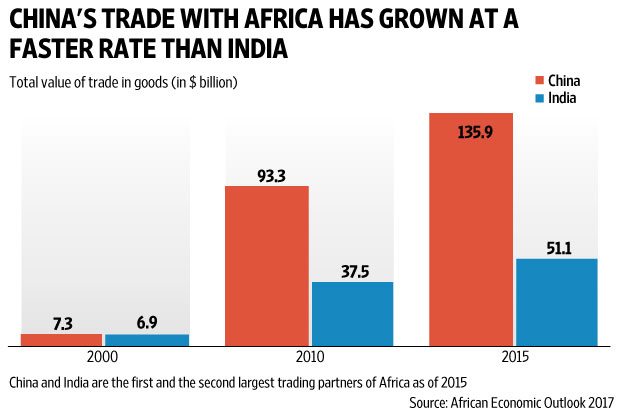
China, African Trade hits $170bn
China’s bilateral cooperation with Africa has grown phenomenally in the past 40 years with trade leaping from $765 million to $170 billion a year.
China’s Deputy Foreign Minister Chen Xiaodong said the growth was based on interlocking interests since 1978.
The minister said this has therefore made China Africa’s largest trading partner during the last few decades.
In the same period Chinese investment in Africa reached a cumulative $ 110 billion. Chen said Africa’s debt to her country is economically sustainable and should be no cause for alarm.
Chen, made the announcement in Beijing on Wednesday at the opening session of the 7th Forum of the China-Africa Expert Committee.
“China is attentive to the situation in Africa and seeks to help the continent to contain the risks of debt and relieve the pressure of payment,” the minister pointed out. The minister said that Beijing also encourages companies in her country to do more investments as well as to explore new models such as public-private partnerships.
China, the official said, understands the importance of debt sustainability in Africa, thereby helping the continent to improve its investment environment.
China’s investments on the continent range from Zambian power plants, Egyptian trade deals, cobalt mines in Congo, rail links in East Africa and infrastructure in Equatorial Guinea.
Both China and Africa proclaim a new, mutually beneficial economic, political, and regional alliance. China sees a source for raw materials and energy, desperately needed to support its feverish industrial and economic growth. Success in this quest means high employment and a higher quality of life for Chinese citizens, as well as increasing social stability and political security for Chinese elites.
Chinese oil companies are gaining the invaluable experience of working in African nations which will prepare them for larger projects on the far more competitive world market. The efficiency of Chinese assistance, loans, and proposals generally been praised. Finally, Chinese industry has found in Africa a budding market for its low-cost manufactured goods.
Chinese diaspora in Africa have been actively supported by Chinese embassies, continuously building the ‘Blood Brother’ relation between China and Africa as perceived victims of Western imperialism.
African leaders earn legitimacy through Chinese partnerships. They work together with the Chinese to provide Africa with key structural infrastructure—roads, railways, ports, hydroelectric dams, and refineries—fundamentals which will help Africa avoid the “resource curse”. Success in this endeavor means avoiding the exploitation of their natural wealth and the beginning of fundamental social and economic transformations on the continent.
